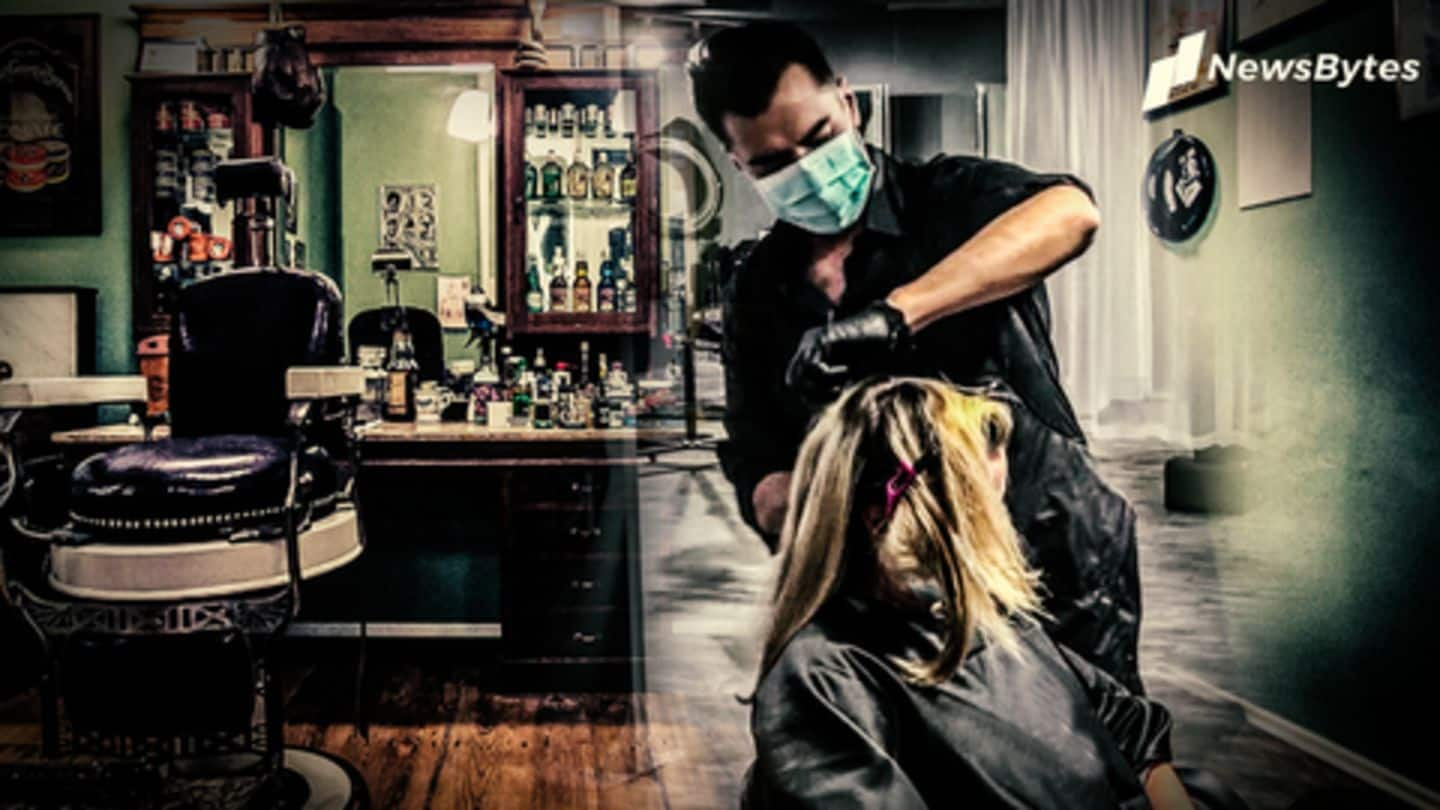
Can "recession-proof" salon business survive the coronavirus pandemic?
What's the story
India's celebrated hairstylist, Jawed Habib, had declared in February that economic slowdown won't hurt his $30 million worth business.
"Slowdown or not, everybody needs a haircut," he had told Business Insider.
But weeks later, when salons and spas were shut, his words haunted the ones working in the industry.
Like other sectors, coronavirus has damaged even the "recession-proof" salon industry.
Here's how.
Fears
From facial sessions to mani-pedis, nothing will remain unscathed
At a time when touching one's own face is advised against, it won't be surprising if patrons skip their monthly facial sessions.
The manicure, pedicure sessions will also take a hit, and nail studios could remain empty for a long time.
In fact, the salons, which function from congested set-ups, will find it difficult to retain even the existing customers.
Hair cuts
Dip in footfall started when initial cases were reported
In the third phase of coronavirus-induced lockdown, the government allowed salons to open in green and orange zones, and soon mask-wearing stylists were spotted giving hair cuts.
But the fear around hygiene remains. This will affect independent shops more than the bigger chains.
Notably, salon businesses started taking a hit from March's first week, much before the country was forced to live under restrictions.
Damage
Salons earning Rs. 5,000/day are left with no clients
The damage caused by COVID-19 can be judged by the statement of Dhiraj Kumar, who owns D Triple One Hair, Beauty & Spa in Goregaon, Mumbai.
He told Moneycontrol that in the heydays he earned Rs. 4,000-5,000 per day by servicing 10-15 clients.
"However, March onwards (before the lockdown), the number of clients came down to as low as one or two," he said.
Woes
Bridal appointments, home services were also affected
Similarly, Jessi, who owns a parlor in Chennai, told she effortlessly got 2-3 bridal appointments per month, but with COVID-19 that changed.
"Customer psychology is unpredictable. So, even after the lockdown, I am not sure how many people will take up beauty services," Jessi added.
And Uma Devi, who provides services at home, stopped receiving bookings from February itself.
Rent
Heavy rents are serving as double whammy
In Chandigarh, a large chunk of salon employees didn't get salaries for April while the owners are struggling to pay rent.
Richa Agarwal, the owner of Cleopatra, which has seven outlets, said she incurred losses of Rs. 10 lakh.
"We pay heavy rents, and even if salons open by June, people may not come due to the COVID-19 fear," she told The Tribune.
Brands
Even brands like Lakme faced the heat
Reflecting the same sentiment, Pushkaraj Shenai, CEO, Lakme Lever, said, "For an industry that is based on human interaction and touch, salons have been greatly affected."
However, Sam Paul, the Chairman and Managing Director of TONI&GUY chain in India, said people will visit salons as they can't keep chopping hair inside homes.
He told News18 the uncertainty would be there till September.
Quote
Paul is confident salon industry won't be affected
"The salon industry is a recession-proof industry, nothing will affect it. Some expensive services like keratin treatment or coloring or things like that which cost Rs. 10,000 to 12,000 could see a small drop. But the haircut and basic things cannot be avoided," Paul said.
Hygiene
"Even smaller outlets can maintain high hygiene standards"
Meanwhile, Munuswamy, Tamil Nadu Barber Workers Association President, agreed that smaller salons will be subject to more scrutiny. But they too are capable of maintaining high hygiene standards. The smaller businesses might not lose to bigger brands, he predicted.
"Our customers are like our friends. We have a rapport with them so they are used to coming to us," he told News18.
Other countries
In the US, thousands of hairstylists applied for unemployment benefits
The lull in business isn't just restricted to India. In the US, the country worst-affected by the pandemic, thousands of salon employees have filed for unemployment benefits.
In Colorado, some salons opened after nearly 50 days with the owners taking extra precautions to ensure it stays that way.
Walk-ins weren't allowed and before letting a patron inside, receptionists screened them.
Changes
Much like everything around us, salons have changed too
Mindy Bodley, the owner of one salon, told NYT, masks have been made mandatory, stylists are required to don rubber gloves, the seating area has been done away with, the interiors have been changed to ensure a minimum of a six-feet distance between customers, and everything is disinfected often.
These measures would have been perceived as unnecessary earlier but have become new normal now.